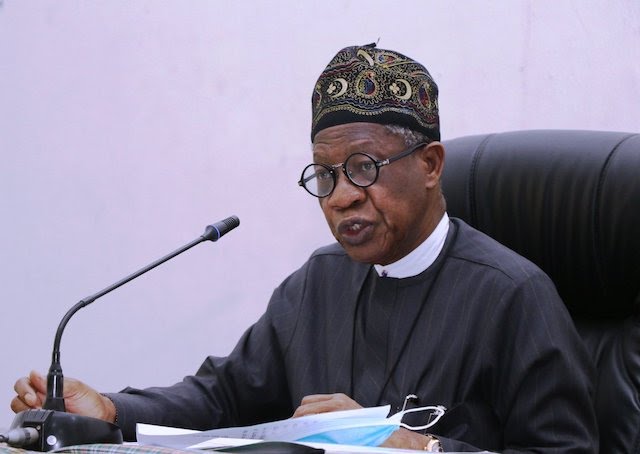The Minister of Information and Culture, Alhaji Lai Mohammed, says N60 billion is spent annually to repair and maintain vandalised oil and gas points.
Mohammed who disclosed this at a Town Hall Meeting on Protecting Oil and Gas Infrastructure in Abuja on Monday, said an average of 200,000 barrels were lost per day to the wanton damage to pipelines.
The Ministers of Environment, Mohammad Abubakar, Niger Delta Affairs, Godswill Akpabio as well as Minister of State Petroleum Resources, Timipre Sylva represented by the Group Managing Director of NNPC, Mela Kyari, were panelists at the event.
Statistics revealed that between January 2019 and September 2020, 1,161 pipeline points across the country were vandalised.
“Apart from the impact on the nation’s earnings, consider also the environmental problems caused by the incessant vandalism, in terms of freshwater pollution, air pollution, soil pollution etc., you will appreciate the enormity of the problem,’’ the minister said.
Read Also: Kaduna Orders Closure Of 13 Schools Over Insecurity
He said with oil providing 80 per cent of Nigeria’s budgetary revenues and 95 per cent of foreign exchange earnings, the impact of the incessant destruction of oil pipelines on the economy humongous.
The minister noted that public infrastructure being at the very core of economic growth and national development, its destruction by some unpatriotic Nigerians calls for great concern.
“To have railway tracks subjected to wanton destruction, bridge railings removed, manhole covers pilfered is antithetical to development.
“Having streetlights and other power infrastructure, oil pipelines, telecoms facilities and critical aviation infrastructure damaged or stolen do not augur well for our growth and development,’’ he said.
He contended that critical infrastructure was been vandalised by some unpatriotic elements in order to thwart the laudable efforts of the President Muhammadu Buhari’s administration.
“It is common knowledge that Nigeria has long suffered massive infrastructure deficit due to decades of neglect, population explosion and the absence of maintenance culture.
“But since coming into office in 2015, the Muhammadu Buhari Administration has embarked on a rapid economic growth with equity,.
“The administration has equally prioritised human capital development through enhanced social services and infrastructure development.
“Inspite a drastic drop in revenues and competing priorities, especially that of tackling insecurity, the administration has invested heavily in providing new infrastructure, in addition to reconstructing and rehabilitating existing ones,’’ he said.
The minister said the town hall meeting was organised to create in the public mind that government property were indeed citizens’ property and so must be protected for the benefit of all.
He said the meeting was also to sensitise host communities of the infrastructure to be conscious of the import of protecting them and exposing all those who engage in buying pilfered infrastructure items along with those who bring such to them to sell.
Mohammed said the event was also to sensitise the larger citizenry to support the widespread campaign on the protection and ownership of public infrastructure and assets.
The event was attended by members of the National Assembly, critical stakeholders in the oil and gas sector, traditional rulers and youth representatives.

